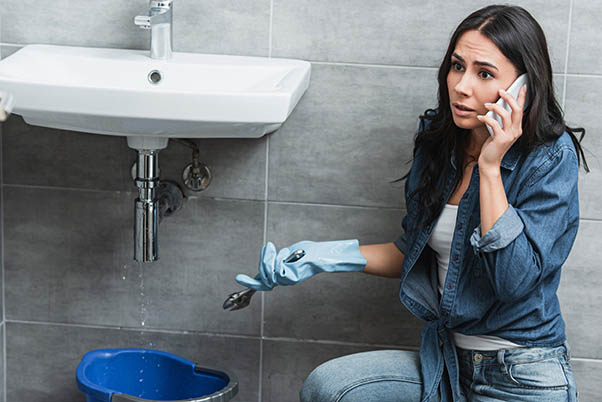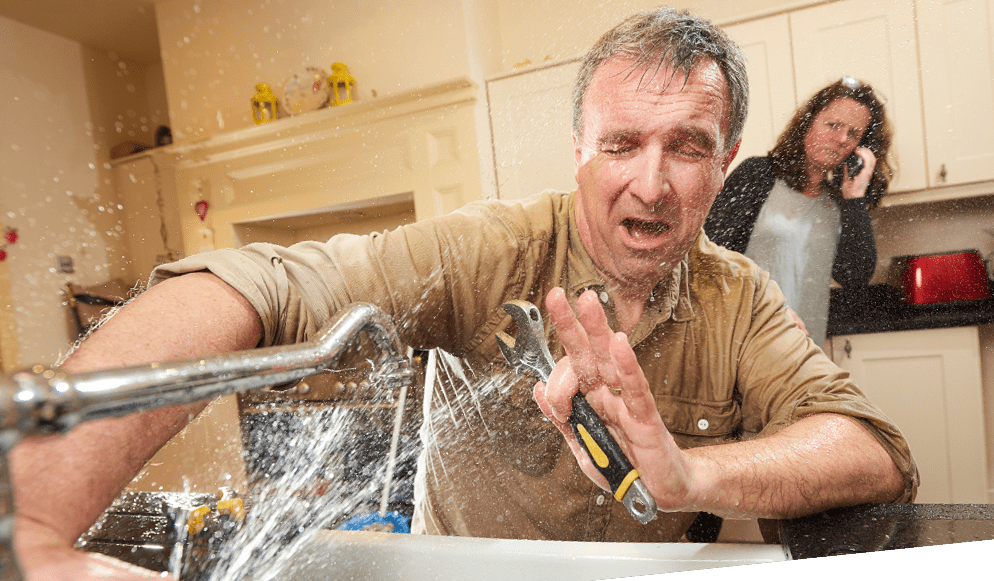Managing Emergency Plumbing Issues: Immediate Solutions Until Specialist Help Arrives
Managing Emergency Plumbing Issues: Immediate Solutions Until Specialist Help Arrives
Blog Article
Presented here further down you can locate some professional insights in relation to What to Do While Waiting for an Emergency Plumber.

Plumbing emergencies can strike at any time, creating tension and potential damage to your home. Whether it's a burst pipeline, a clogged up drain, or a leaking faucet, knowing just how to handle the circumstance up until a professional plumber arrives can conserve you from more issues. This short article gives necessary emergency pipes ideas to assist you reduce damages and reclaim control throughout a plumbing crisis.
Switch off the Water System
The initial step in any pipes emergency is to shut down the water system. For local problems, such as a leaking faucet or commode, switch off the shutoff near the fixture. In the case of a significant leak or burst pipeline, find your home's main water shut-off shutoff and turn it off immediately. Understanding the area of these shutoffs beforehand can conserve important time during an emergency situation.
Address Small Leakages with Short-term Fixes
Tiny leaks can promptly end up being significant troubles if left untreated. Utilize these temporary solutions up until professional aid shows up:
While these repairs aren't permanent, they can aid reduce water loss and damages.
Unclog Drains Securely
A clogged drain can be an irritating and unpleasant problem. Right here's just how to tackle it:
If these approaches don't work, prevent making use of too much force, as it may aggravate the obstruction.
Handle Overflowing Toilets
An overruning toilet can cause instant turmoil. Below's what you should do:
Shut down Your Hot Water Heater
In particular emergencies, such as a burst pipe, it's wise to shut off your water heater. This prevents overheating or damage to the unit when water stops flowing. Turn off the power supply to the hot water heater (electrical or gas) and allow it cool to stay clear of possible threats.
Momentarily Quit a Ruptured Pipe
A burst pipe can lead to significant water damage in minutes. To minimize the concern:
Call an expert plumbing promptly to deal with the problem completely.
Take Care Of Frozen Water Lines Carefully
In cooler environments, frozen pipelines are an usual emergency. If you think a frozen pipeline:
Avoid More Damages
Taking quick activity to reduce damage can conserve you money and time in the long run. Below's exactly how:
. Have an Emergency Situation Plumbing Package
Prepare a fundamental pipes emergency package to deal with small issues properly. Your kit needs to include:
Having these devices on hand can make a considerable distinction in your capability to take care of emergencies.
Know When to Call an Expert.
While quick fixes can aid temporarily, particular plumbing problems call for immediate expert focus. Call a plumbing technician if:.
Quickly calling a specialist ensures the problem is solved correctly and avoids additional issues.
Verdict.
Plumbing emergencies can be overwhelming, however with the appropriate expertise and tools, you can manage the circumstance effectively until assistance shows up. By switching off the water, addressing tiny leaks, and using short-term repairs, you can lessen damages and maintain your home safe. Keep in mind, these pointers are short-term options; constantly seek advice from an accredited plumbing to manage the source of the issue. Prep work and quick thinking are your finest allies in any type of plumbing emergency.
8 Helpful Tips for Managing Plumbing Emergencies at Home
If your plumbing system hasn’t failed once, wait for it because almost everyone has a story to tell. Sometimes, it could be simple emergencies such as a leaking pipe, a blocked cistern, or even a big burst pipe. In situations like this, you need to have some handy tips to save you some money and from possible damages.
Take care of minor issues early.
Sometimes, you could have avoided an emergency by taking proactive measures while it was still early. Some major plumbing emergencies can be a result of an ignored minor issue. We recommend that you have items like plumbing tapes and other related items. A plumbing tape can allow you to manage minor leaks before the plumber arrives.
Cut off the water supply.
This tip is essential in almost any type of leakage problem. For problems like minor leakages in the toilet or kitchen, turn off the supply that takes water to the affected pipes. If the leakage is a major pipe, you must shut off the supply valve to the entire building. This will help you avoid flooding your home and neighbors if you share a flat.
Know your plumbing system
Folks typically move into a new apartment without understanding the water supply around the building. This can prove disastrous if a water emergency arises and the plumber is far away. The previous tip will prove useless if you don’t practice this one. More importantly, know where your water shut-off valve is located – you’ll need that knowledge to prevent potential home floods.
Have some common handy tools
There are lots of plumbing emergencies that you can handle without hiring a plumber. That’s why you must keep some tools available always. Some tools that you can use to fix simple plumbing emergencies easily include plumbing tapes, screwdrivers, thread seal tapes, plungers, pliers, tape measures, and rubber gloves.
Insulate your pipes from cold
You’ll save yourself from many plumbing expenses if you protect your water pipes from the cold. This is because of the harmful effects that cold weather can have on your pipes. During winter, your pipes can burst from being overly expected to freezing temperatures. So, make sure insulators are there to keep the pipes working correctly.
Avoid practices that will clog your toilet.
Many people indulge in practices that can damage the plumbing system of the entire building. One of these is when they use their toilet to dispose-off garbage. They flush all kinds of things, such as paper towels, bandages, hairs, female sanitary products, etc., down the toilet. This will block your toilet in the long run, incurring unnecessary expenditures. Dump such waste in the trash instead.
Check your dials regularly.
Sometimes, there could be leakages in your home without noticing them in time. So, constantly monitor your water meter dial. If the dial is reading when there is nobody using water, this is an indicator that there is leaking. Check for leaks immediately. Call a plumber as soon as possible if you can’t find any.
https://www.constructionplacements.com/8-helpful-tips-for-managing-plumbing-emergencies-at-home/

Do you like more info about Expert Tips for Managing a Plumbing Emergency Until Help Arrives? Leave feedback further down. We would be happy to see your opinions about this page. Hoping that you come back again before long. Kindly take the opportunity to share this blog posting if you appreciated it. Thank you so much for going through it.
Call Report this page